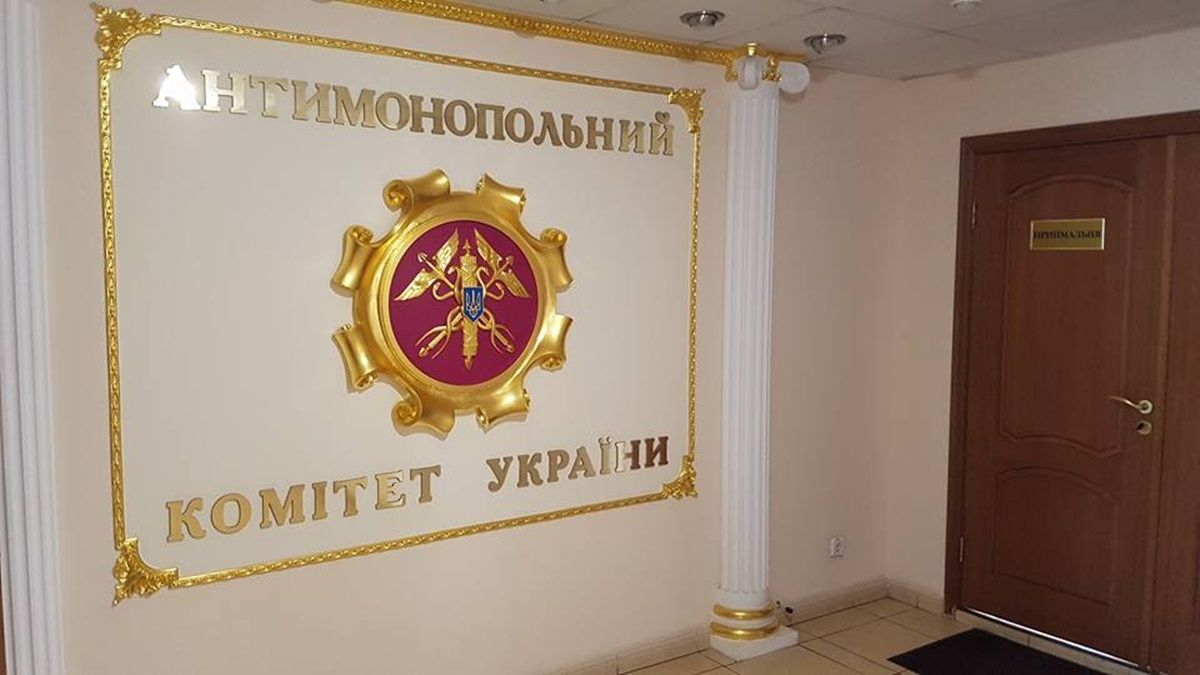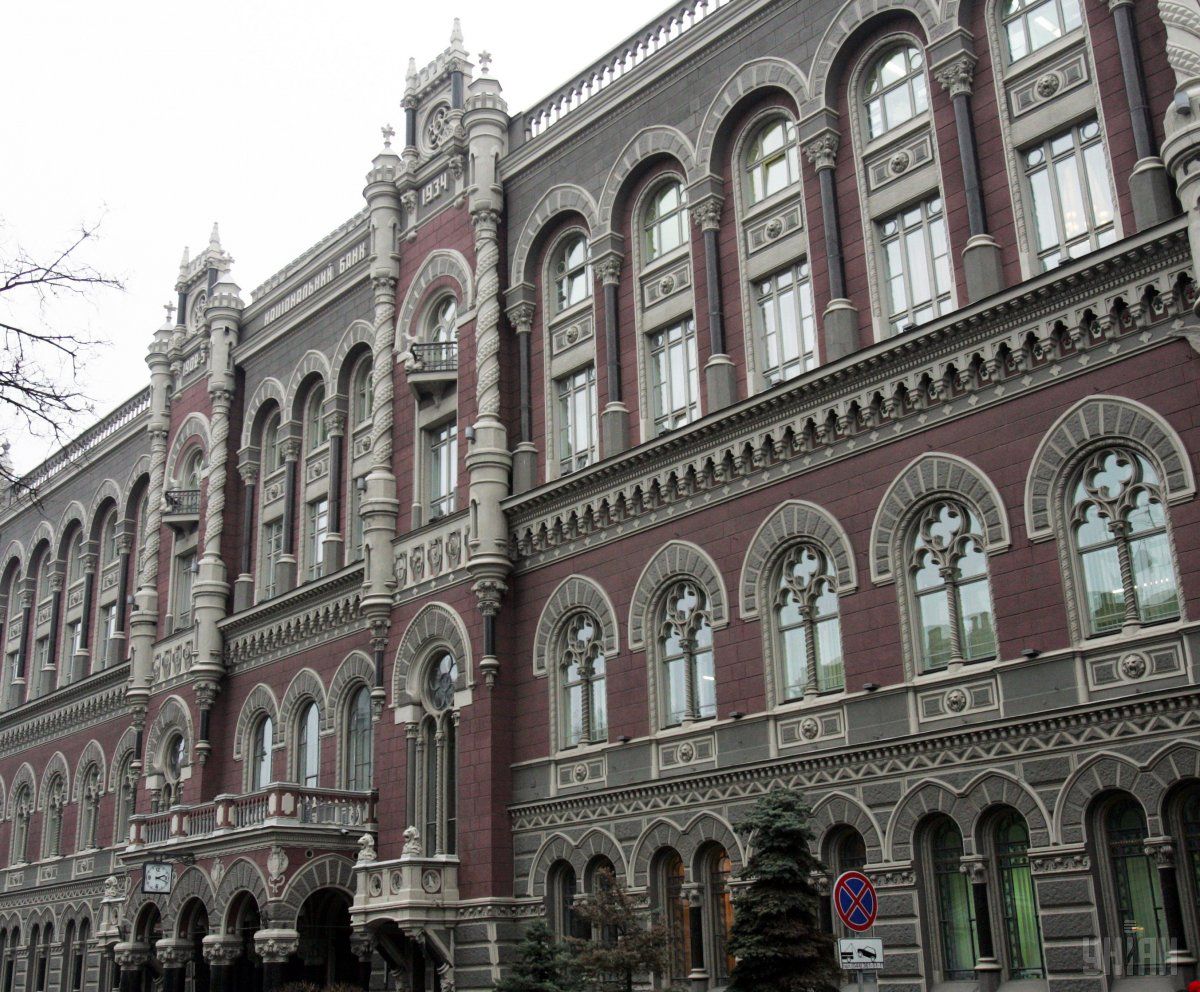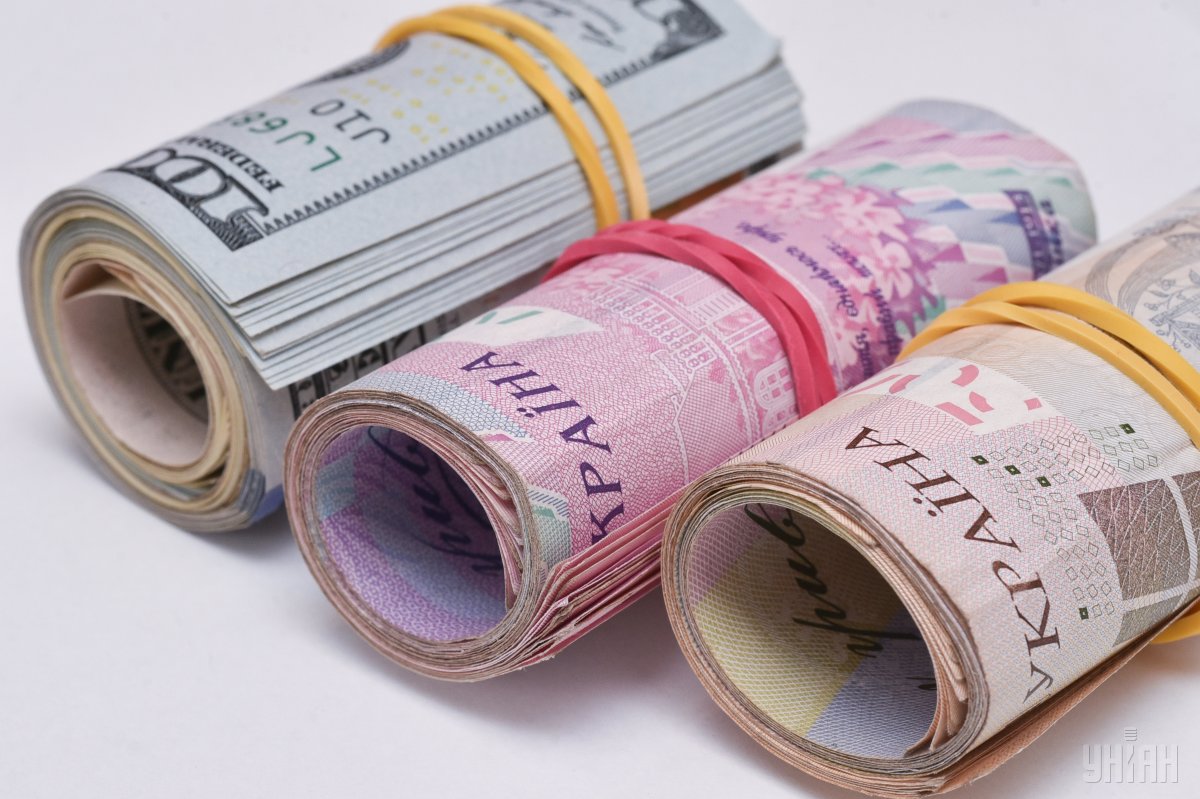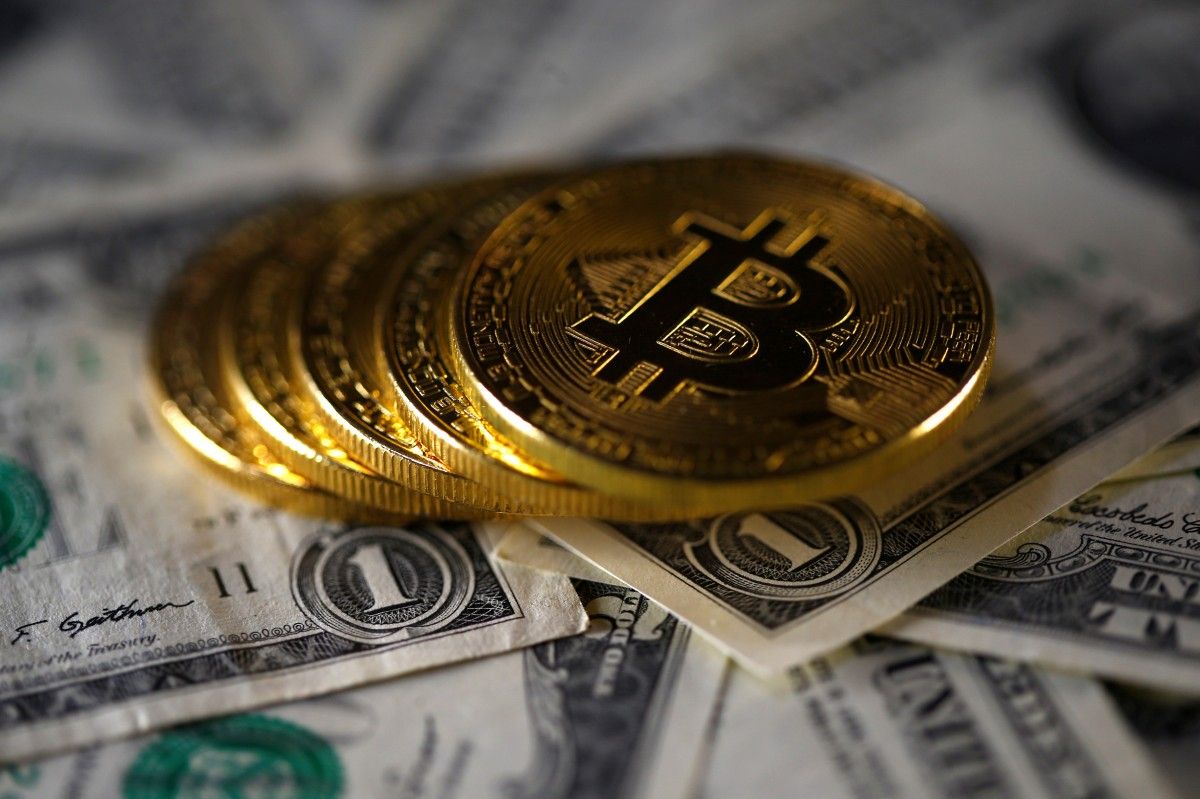
Week’s balance: extending moratorium on inspections of businesses, NBU supporting hryvnia, and state budget seeing surplus
President Petro Poroshenko launched an initiative to prolong the moratorium on inspections of businesses throughout 2018, Prime Minister Volodymyr Groysman announced the adoption of government and Rada’s decisions early next year aimed at accelerating economic growth to 5-7%, and showered criticism on Ukraine’s Antimonopoly Committee, while the National Bank once again rushed to support the shaken hryvnia - these are the week’s key economic news.
The outgoing week was marked by some important statements by the Ukrainian leaders voiced at a meeting with representatives of business associations December 1. President Petro Poroshenko said that the European Commission decided to allocate a tranche of macro-financial assistance to Ukraine in the amount of EUR 1.8 billion. Besides, he did not rule out that the moratorium on inspections of businesses would be extended for another year, and he also gave instructions to complete within a year the creation of an electronic land cadaster to facilitate land reform within a year. That is, land reform is postponed at least until 2019. The president also announced readiness to develop on the request of businesses a bill introducing criminal responsibility for smugglers. Meanwhile, Rada, according to Poroshenko, on December 7 will consider a deregulation bill to improve Ukraine's position in Doing Business rating. He also said that customs duties could be canceled and VAT payments postponed for a year for businesses importing equipment.
For his part, Prime Minister Volodymyr Groysman at the same meeting said that he expected important government and parliamentary decisions would be adopted in February-May 2018, which will allow achieving economic growth of 5-7% in the years to come, and the law on the state budget for 2018 would be considered by parliament December 7.
An interesting situation has developed in regard to the EU aid tranche. Poroshenko said the following: "The communiqué of the European Commission has just come out following my talks during the Eastern Partnership summit. I want to emphasize that the negotiations were very difficult. Very difficult… The President of the European Commission, the European Commissioners, given the difficult budgetary situation in European Union is today, adopted an important decision for Ukraine - the decision to grant Ukraine the fourth tranche of macro-financial assistance. As I’ve said, its volume amounts to EUR 1.8 billion."
At the same time, the communiqué published on the website of the European Commission notes that Ukraine has not fulfilled the conditions for receiving the third tranche worth EUR 600 million within the framework of the current macro-financial assistance program.
"Four of the measures linked to the third and final tranche of this MFA currently remain outstanding. Against this background, the Commission is not in a position to disburse the last tranche of the current MFA programme,” the statement said. “We encourage Ukraine to maintain the reform momentum in the many areas that have progressed well, and complete the measures outstanding under the current programme, with the support of all stakeholders.”
The European Commission noted that during the meeting of Peter Poroshenko with the head of the European Commission Jean-Claude Juncker in Brussels on November 24, the Ukrainian side expressed interest in further receiving macro-financial assistance. "From Ukraine's side, reinforcing the reform momentum and resisting internal pressures for policy reversals on important reforms will be crucial, particularly over the coming months. The Commission stands ready to assess the relevance of a successor MFA operation and, if judged warranted, to present a proposal for a new MFA operation in early 2018. An economic assessment, including of external financing needs, will have to be conducted and the details of this proposal would have to be worked out. Moreover, it will be important to ensure that the country's IMF programme remains on track. Any proposal would be subject to the approval of the European Parliament and of the Council of the EU, as per normal legislative practice," the EC stressed.
At the same time, the statement says nothing about the allocation of another tranche of macro-financial assistance or the volume of the new program.
Antimonopoly scandal

In the past week, a scandal erupted around the Antimonopoly Committee. PM Groysman sharply criticized its performance, branding it "a threat to the state." "I am extremely concerned, - and I want to say this in front of the entire country - with the inefficiency of the Antimonopoly Committee’s work. Their efforts on blocking tenders bears tough signs of corruption and threats to the state development," the prime minister said.
Groysman accused the Committee of blocking the most important tenders in Prozorro e-procurement system at both the central and local levels. He did not rule out that the government would initiate changes in legislation to eliminate opportunities for abuse.
"The issue of the Antimonopoly Committee is already becoming a matter of national security ... I will not forgive them for this, they will be punished. If not today, maybe tomorrow; if not tomorrow, maybe in a month… I'll find opportunities," Groysman said.
It’s not the first time the premier voices accusations against the AMC. In early September, Groysman vowed to raise the issue of the dismissal of AMC head Yuriy Terentyev and his "minions" in case the blocking of important state tenders continued, as it happened during the attempt to procure scanners for customs. They were supposed to be used to fight smuggling as, due to the lack of proper control over the import of goods by trucks and semis, Ukraine annually loses some UAH 25 billion. Groysman said that the AMC was run by smugglers and corrupt officials, rather than by state interests. Fearing the PM’s threats, the AMC unblocked the tender, admitting that its actions had been groundless.
President Petro Poroshenko also expressed dissatisfaction with the AMC's work. His arguments boiled down to the following: more than 50% of all complaints on public procurement procedures that "freeze" tenders are filed by the same group of five companies, and the blocking of tenders is already becoming a profession.
According to Poroshenko, the Verkhovna Rada will soon consider draft laws that will, on the one hand, allow eliminating manipulations within the electronic system of public procurement and on the other - resolving the issues of fictitious complaints aimed at blocking tenders.
"We need to remove the space for manipulation in public procurement, to support the national economy," the President stressed.
Probably, certain personnel reshuffle in the AMC is to be expected shortly as well as criminal investigations as such accusations of corruption voiced both by the president and prime minister cannot fall on a deaf ear of Ukraine’s law enforcement agencies. And if so, then, probably, answers will finally be heard to some long-standing questions, like why we have so many monopolies in the markets, and why the methodology has not been changed since 2002 for revealing anticompetitive moves by violators.
Stabilization of banking sector

Director of the Financial Stability Department of the National Bank of Ukraine Vitaly Vavrishchuk said that there were no worrying signs regarding the Ukrainian banking sector.
"In the coming years, we expect no serious shocks or serious bankruptcies. The situation has normalized," he said.
Meanwhile, he allowed that number of small banks could close down, which he believes will have no significant impact on the banking sector. This is about nearly 10 small financial institutions that must increase their own capital to the required level, and that still have enough time to complete their task.
The National Bank expects more consolidation of the banking market, which will lead to the strengthening of the stability of the entire sector.
"Very small banks are unlikely to remain competitive in the market. We want to see consolidation, this will make the banking sector more healthy and competitive," Vavrischuk said. In general, the direct costs of resolving the banking crisis, which led to the bankruptcy of 80 financial institutions, since 2014 amounted to 14% of GDP. During this period, the Individual Deposits Guarantee Fund paid to depositors of insolvent banks nearly UAH 80 billion of reimbursement.
In another news from the banking sector, last week, the regulator canceled the crisis-related decision adopted in February 2015, which banned measures to banks for violations of economic standards, while imposing a number of restrictions on such banks.
The NBU justified its decision by the fact that the banks had already identified negative consequences of the crisis and taken them into account in their stabilization plans amid positive changes in the banking sector.
Forex swings

After the continuous fall in the last days of autumn, the Ukrainian hryvnia on the first day of winter, Friday, December 1, slightly strengthened - the quotes of the national currency to the dollar on the interbank market were set at UAH 27.02-27.05 to the U.S. dollar.
According to the National Bank, the hryvnia in November devalued against the dollar at an average official exchange rate of 0.2%. The main reason is the seasonal decline in the receipts of export earnings for certain groups of goods and the growth in demand for currency from the enterprises of the fuel and energy sector. At the same time, in the cash foreign exchange market, the prevalence resumed of the supply of currency by the population over demand, which still remained high due to seasonal deterioration in exchange rate expectations.
In order to keep the situation under control, the National Bank maintained its presence in the foreign exchange market. As a result of November, the regulator bought $139 million more than it sold, and since the beginning of the year, net purchases totaled $1.4 billion.
Oleh Churii, Deputy Head of the National Bank of Ukraine, commented on the current situation in the foreign exchange market as follows: “Naftogaz is currently not buying currency but, on the contrary, sells it, receiving good revenues from gas transmission. But there is a purchase of energy carriers by other market participants and the purchase of seasonal goods for the holidays, the New Year. Also, there is some influence on the part of compensation payments for the value-added tax. VAT refund we had last week was at UAH 9 billion. You saw how the exchange rate had reacted immediately. When exporters bring large amounts of hryvnias into the market, for some time they sell less foreign currency. But we are working with the Ministry of Finance to ensure that they reimburse VAT evenly."
There is no need to worry much about the hryvnia as the National Bank assures that this year there will be no additional pressure on the foreign exchange market. Now there is a very favorable situation with exports, due to which the foreign exchange earnings remain quite high.
Indeed, there is no reason for any anxiety yet as the hryvnia exchange rate is in line with the budget target for this year – at UAH 27 / USD. Some latest budget news add more optimism.
Economic growth over three quarters

Ukraine has entered this winter with an almost twofold growth in the balance-of-payments surplus to $2.074 billion, compared to the previous year. The state budget over January-October was also executed with a surplus at UAH 1.4 billion against UAH 60.3 billion of deficit for the same period last year.
The deficit of the general fund of the state budget for the said period amounted to UAH 26.3 billion, while the special fund surplus was at UAH 27.7 billion.
The situation is also quite fine with the volume of foreign direct investment, which, according to the State Statistics Service, over the 9 months grew by 5.9% compared to the beginning of the year - up to $39.720 billion. Cyprus remains the key investor with the volume of investments amounting to $464.6 million. Incidentally, the volume of direct investments in the world economy by enterprises that are residents of Ukraine over the 9 months was at $10.2 million.
Minister of Economic Development and Trade Stepan Kubiv said that economic growth in Ukraine was recorded for the third consecutive quarter: "In the first quarter, GDP grew by 2.5%, in the second - by 2.3%, and in the third - by 2.1% compared to the corresponding quarters of 2016."
Crypto-era or another bubble

This week, the world was shaken by the record pace of the most popular cryptocurrency, bitcoin. On November 29, it once again updated its historical high, passing a mark of $11,000. However, only two days before that, it was trading around $9,000. Bitcoin’s market capitalization has reached $165.85 billion.
Crypto-currency stock exchanges immediately reported a record number of new users. For example, the number of Unocoin customers in just a month has reached about 200,000. Sme interesting forecasts have also been voiced. The creator of the popular antivirus software, McAfee, John McAfee believes that by 2020, the bitcoin rate will be at $1 million.
Meanwhile, from November 30, the rollback of bitcoin began, and on December 1, the rate fell sharply below $10,000. According to MarketWatch, the cause of the jump was a malfunction in the work of crypto-stock exchanges, caused by a large influx of users.
Meanwhile, some experts have once again started talking about the likelihood of another bubble. James Damon, Chief Executive Officer of the financial giant JPMorgan Chase, said that one should not just do business where the currency is taken from the air, warning that the whole thing might end badly and someone might even get killed. He believes bitcoin is a fraud and feels shocked that no one sees the real situation.
Ukraine did not stay aloof from crypto-currency discussions. Regulators of Ukraine's financial market, namely the National Bank of Ukraine (NBU), the National Securities and Stock Market Commission, and the State Commission for Regulation of Financial Services Markets of Ukraine continue to determine the legal status of the cryptocurrency in Ukraine
In their view, the complicated legal nature of the cryptocurrency does not allow to recognize it either money, currency or another country's means of payment, currency valuable, electronic money, securities, or money surrogate. To deal with the situation, a working group should be set up including three specified financial market regulators, as well as the Ministry of Finance and the State Financial Monitoring Service.
Deputy head of the NBU Oleh Churii warned that any transactions with crypto-currencies, including their purchase, sale, exchange and conversion, involve high risks. The main ones are the probability of loss of funds due to hacker theft, lack of guarantees of return of funds, probability of fraud, difficulty of evaluation, significant price fluctuations, and lack of infrastructure.
As for the laws on the cryptocurrency submitted to the Verkhovna Rada, the NBU called them premature. However, the central bank did not specify the exact terms when the status of cryptocurrencies in Ukraine would be determined, referring to the complexity of the issue. In addition, among the regulators of the leading world countries of the world, including the European Union, there is no uniform approach to determining the legal status of the cryptocurrency and regulating relevant transactions.
The first week of winter will be no less full of significant economic news. The Verkhovna Rada will resume its work and take up consideration of important laws, including the state budget for 2018; while and the State Statistics Service will publish data on inflation.
Yelizaveta Korchemakha

